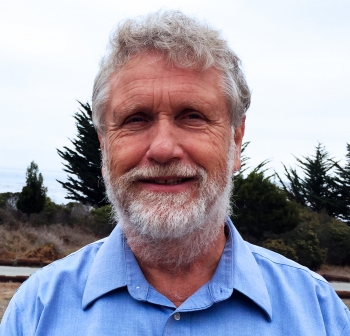By: Brendan P. Kelly, SEARCH Executive Director

Arctic residents, industries, government agencies, and other decision-makers seek to understand the Arctic as a complex, interacting system. SEARCH facilitates such understanding through crosscutting transdisciplinary research aimed at answering stakeholder questions. At the heart of many stakeholder questions are rapid changes in the environment related to diminishing sea ice, land ice, and permafrost. Those changes in the cryosphere need to be tracked, forecasted, and understood in terms of physics and in terms of their societal and environmental consequences. We are rich in scientific talent making significant progress. Too often, however, we lack sufficient resources to support the significant additional time required to engage in vital cross-disciplinary and cross-cultural discussions. SEARCH is dedicated to facilitating just such discussions.
While science can advance in the absence of facilitators, I believe that certain problems—by their nature—call for coordination among and within disciplines. The unprecedented rapid change in Arctic environments demands that we organize and speed up the pace of acquiring new system-level understanding. The process of facilitating such an understanding is inherently messy. Agencies and interagency bodies struggle with it, and the broader scientific community struggles with it. In the United States, we are making progress both within and outside of the government. The interagency process is getting increasingly well organized, and in the broader science community SEARCH has promoted many projects and discussions that have advanced our systems-level understanding of the Arctic. At both levels, there remains plenty of room for improved coordination, but if one considers our understanding of the Arctic today versus that of 20 years ago when SEARCH was being formed, it is clear that we have made considerable progress.
SEARCH has developed a plan that details a better approach to stakeholder participation in the conception and conduct of research. At the same time, SEARCH is participating in the collaboration teams established by the Interagency Arctic Research Policy Committee (IARPC), thus bringing together the considerable Arctic talent in and outside of the government. As SEARCH's first Executive Director, I am excited to help implement these new directions.
I intend to help clean up some of the messes, but I dare not promise a total cleanup. I think we are best off recognizing that science communities are messy and, while we strive to maximize efficiency, we need to appreciate the benefits of tolerating a certain amount of mess. For one thing, some messes reflect the rich diversity of ideas and approaches in our research community. Indeed, we are very fortunate to have such talent, and I am honored to work with them, mops-in-hand.
Also complex, but essential, are the efforts of the people in institutions supporting Arctic research. The National Science Foundation (NSF) provides the largest share of support for the SEARCH program, including the important supporting services provided through the Arctic Research Consortium of the United States (ARCUS). Critical reviews by NSF program officers and reviewers continually help to refine the SEARCH effort. The National Center for Atmospheric Research has committed salary support for the Chair of SEARCH's Scientific Steering Committee. The U.S. Geological Survey will provide postdoctoral support for the SEARCH Permafrost Action Team. The University of Alaska Fairbanks is supporting part of the Executive Director's salary, and the Center for the Blue Economy (Middlebury Institute of International Studies at Monterey) provides the Executive Director's office. Other agencies have provided support in the past and continue their intellectual engagement. Included in the latter group is the U. S. Arctic Research Commission, which provides important input to the research community and has repeatedly provided funding and ideas that have helped the community advance collectively.
There can be no doubt that the understanding of the Arctic system that we—researchers, program managers, resource managers, policy makers, and stakeholders—achieve in the next 20 years will be of long-lasting and global significance. I am confident that SEARCH will play an important role in that effort and that—with its partners—SEARCH will help optimize the mess-to-productivity ratio.
